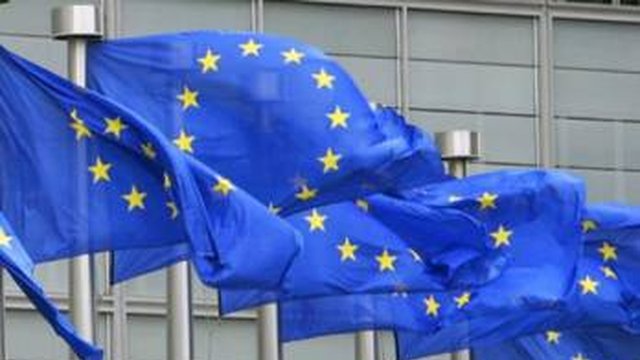Anti-Russian sanctions are efficient, not endless

The European Union Foreign Affairs Council may consider any types of sanctions against Russia, considering the way the situation in eastern Ukraine is developing, but it is unlikely that it could impose new major economic restrictions in the near future, and that they won't last forever, an EU diplomatic source told Interfax on condition of anonymity in Brussels on Wednesday.
A lot of Foreign Affairs Council members are of the view that the sanctions already imposed on Russia are quite efficient, judging by its economic performance of late, and no one is interested in ruining the Russian economy, the source said.
All the EU expects from Russia is to efficiently facilitate the ending of the military conflict in Ukraine, which is a matter of its political will, he said.
The diplomat pointed out that the EU remains determined to consider tightening the sanctions depending on the continued escalation of the hostilities in eastern Ukraine, which has been observed lately. At the same time, the matter is not about unlimited sanctions, as the ultimate goal is to enforce peace in Ukraine, he said.
Asked about possible conclusions to be made at a meeting of the EU Committee of Permanent Representatives on Wednesday, the source noted that, while this committee is an important stage as concerns the coordination of the 28 member-states' positions, this is merely an internal working body of the EU. The actual decision is to be made by the Council of the European Union, and the next steps would be based on its conclusions, he said.
The Council of the EU has broad powers, it can consider any measures proposed, and the ministers will carefully weigh all pros and contras, the source said. He presumed that the expansion of the list of individuals barred from entering the EU is likely to be the next step.
The diplomat refrained from answering whether the EU could block exports of gas extraction equipment to Russia and disconnect it from SWIFT, i.e. the global inter-bank telecommunication system, noting only that, while such or similar ideas probably do exist, he would not comment on what is being done to this effect.
In technical terms, if a decision is made to expand the sanctions, the Council of the EU is supposed to issue the relevant instruction to the European Commission and the European External Action Service, as it usually happens, and they would draw up their proposals by the deadline set to them, he said.
Asked whether this could be done before a February 9 meeting of the EU Foreign Affairs Council or an EU summit on February 12, the diplomat suggested that it would make sense to wait for a Council of the European Union meeting on January 29, adding that no decision has yet been made.
